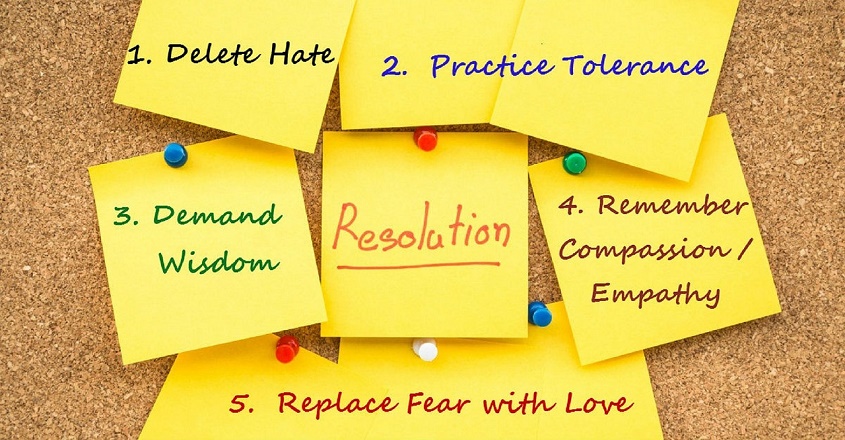Everyone loves the idea of making positive changes to their life but in practice, there’s usually something keeping you from actualizing these changes such as the amount of time, energy, mental resistance, focus, and willpower you have. The new year stands before us like a fresh chapter in a book. If you never had the habit of dedicating time out to reflect on your achievements for the past year and ponder through your resolutions and goals for the new year, it is perhaps time to do so. Yes, we all know that despite the best intentions, 92% of folks failed to stay true to their resolutions. That’s why we are here to help with 5 important considerations when you plan for a year of achievements.
1. Know Your Hotspots
Every day you invest your resources (like time, energy, willpower, money, and focus) into a number of different hotspots such as Family, Career, Relationships, Finances, Health, Fun etc. Your hotspots, when added up, make up who you are. To be able to take a step back from your life, it’s important to list out and take inventory of exactly what is in each of your hotspots.
Diving deep into each of your hotspots will help you identify some of the potential New Year’s resolutions to make because you will be able to see your entire life at a glance, and identify where you need to change the most.
2. Anchor Your Core Values To Your Hotspots
To prioritised your hotspots, you have to uncover and define your core values. Defining your core values will help you align your goals with who you really are, and you will be much more motivated to act on your resolutions this way.
When you make resolutions that are in line with what you deeply value, you can be sure that you’re not just making a resolution because you like the idea of making the change, you can be sure you deeply value whatever change you plan to make. If you’re having trouble defining your values, what often works for me is to look at how I spend my time on a daily basis, and then work backwards from there toward my values.
3. Your Time, Energy & Willpower Are Limited
When selecting your resolutions and goals, it is important to know that you only have a finite amount of time, energy, and willpower. It is crucial to understand the costs behind changes and if they are worth it in the first place. Taking the time to reflect these costs help to determine their impact to your life and whether the particular New Year’s resolution is worth making.
The easiest way to tell if a change is a high enough priority for you is to look at whether you’ve made it at some points in the previous years. If you have made a conscious effort to make some significant changes, chances are it’s important to you, and if you have not even lift a finger to do anything, it’s probably not as important (in practice) as you might think it is.
4. Make Your Goals SMART, Small & Challenging
Many people make a crucial mistake at this juncture. They stop planning and don’t create a plan to follow to actually follow through on their resolutions. This is probably why 92% of people fail at their resolutions. The “SMART” model to setting goals is very simple and very powerful. It says that for a goal to be a good one, it has to be specific, measurable, attainable, relevant, and time-based. Resolutions such as the ones below are too general and have no measurable.
For it to be attainable, you have to make your positive, lasting changes very small. The reasoning behind it is simple: the smaller the changes you try to make to your life, the more likely you’ll actually make them. Smaller resolutions will also make you delightfully anxious. For example, if you make a New Year’s resolution to lose one kilogram a month for four months, create a plan to reach your goal and then only visit the gym once a week to start. If you care about making the resolution (that is, it’s aligned to your values), you will be incredibly anxious to ramp up how many times you hit the gym a week as the year rolls on.
Just because your New Year’s resolutions should be small doesn’t mean that they should be easy. Especially if your resolution is to learn a new skill (or you need a specific skill to achieve your goal), activities that pose a challenge roughly equal to your skill level. It is important to have fun along the way!
5. Reward Periodically & Don’t Be Too Hard On Yourself
A lot of people have the tendency to be hard on themselves when they make changes to their lives. They set unrealistic expectations for themselves, don’t reward themselves when they reach milestones on their goals, and many people (myself included) have the tendency to constantly push their goals just a little beyond their reach, so they’re never quite able to achieve them.
Go easy on yourself. Put in breaks in between your goals and reward yourself when you achieve them.
We hope you find our 5 considerations helpful. All the best in working out your personal resolutions for the coming year and may you have a fruitful year of achievements.













